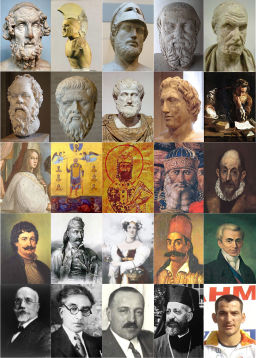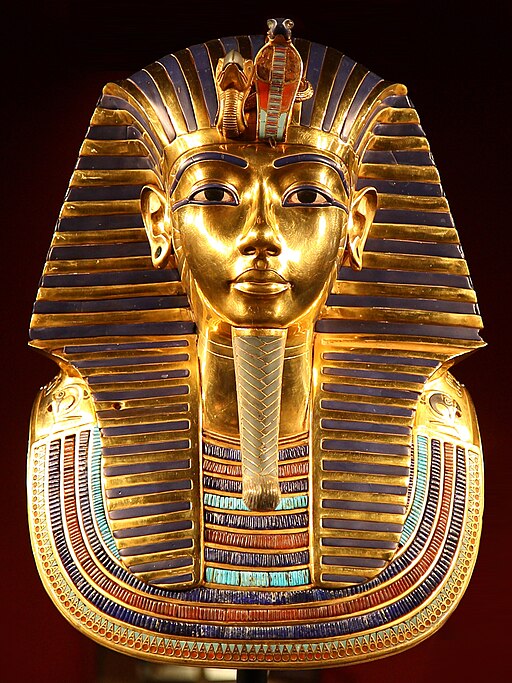
Amsterdam’s Rijksmuseum is the Dutch National Museum dedicated to arts and history. The Rijksmuseum was founded in The Hague in 1800. It moved to Amsterdam in 1808, where it was first located in the Royal Palace and later in the Trippenhuis.
The museum has a collection of 1 million objects from the years 1200–2000, among which are masterpieces by Rembrandt, Frans Hals, and Johannes Vermeer.
The Rijksmuseum is the largest and most visited art museum in the Netherlands. In addition to centuries of Dutch art and history, the museum has significant outdoor gardens and a superb restaurant.
Virtual Tour of the Rijksmuseum
- “The Night Watch” by Rembrandt van Rijn
- “The Jewish Bride” by Rembrandt van Rijn
- “The Milkmaid” by Johannes Vermeer
- “The Little Street” by Johannes Vermeer
Highlights Tour of the Rijksmuseum
“The Night Watch” by Rembrandt van Rijn
“The Night Watch” by Rembrandt van Rijn depicts a company of military men moving out, led by the Captain dressed in black, with a red sash and his lieutenant adorned in yellow, with a white sash.
The Night Watch is one of the most famous Dutch Golden Age paintings. The painting is noteworthy for its colossal size, its dramatic use of light and shadow, plus the perception of motion in what would have traditionally been a traditional static military group portrait.
Rembrandt has skillfully used sunlight and shade to lead the eye to the three most important characters among the crowd.
They are the two gentlemen in the center from whom the painting gets its original title, and the woman in the center-left background carrying a dead chicken tied to her belt.
Rembrandt has displayed the woman with the claws of a dead chicken on her belt to represent the symbols of the arquebusiers, and she is holding the militia’s goblet.
The dead chicken represents a defeated adversary. The color yellow is often associated with victory.
“The Jewish Bride” by Rembrandt van Rijn
“The Jewish Bride” by Rembrandt, gained its name in the early 19th century when an Amsterdam art collector identified the couple as that of a Jewish father bestowing a necklace upon his daughter on her wedding day.
This interpretation is no longer accepted, and the identity of the couple is uncertain.
The likeliest depiction is that of Isaac and Rebecca, as described in Genesis 26:8, and this view is supported by a Rembrandt drawing of Isaac and Rebecca, with the same theme which shows the couple in a similar composition.
“The Milkmaid” by Johannes Vermeer
“The Milkmaid” by Johannes Vermeer depicts a domestic kitchen maid, an indoor servant, and not a milkmaid who milks the cow.
She is carefully pouring milk into an earthenware container, now commonly known as a “Dutch oven.” She is a young woman wearing a linen cap, a blue apron, and work sleeves pushed up from the forearms.
Various art commentators have pointed to the possibility of symbols in the painting that suggest amorous references, while others argue to the contrary and that the maid is treated in an empathetic and dignified way.
On the floor level, are some Delft wall tiles depicting some blue figures.
One of the blue characters on the tile is a cupid figure, and that has been identified as one of the amorous symbols in this work that show the Dutch tradition of that time when maids were depicted as subjects of male desire.
“The Little Street” by Johannes Vermeer
“View of Houses in Delft,” also known as “The Little Street” by Johannes Vermeer, depicts a quiet street, with four people conduction routine tasks in everyday life in a Dutch town.
It is one of only three Vermeer paintings of views of Delft, and it captures a perspective that Vermeer knew well.
The house on the right in this painting belonged to Vermeer’s aunt, and Vermeer’s mother and sister also lived on the same canal, diagonally opposite.
The composition of straight lines and the triangle of the houses give the painting a vibrancy, and that reflects reality.
The walls, stones, and brickwork are painted in a solid color of limited pigments, which provides a robust and concrete aspect to the painting.
Dutch Proverbs and Quotes
- Dutch Proverbs and Quotes
Tips for the Rijksmuseum
The Rijksmuseum is located in Museum Square to the south of the city. It is accessible via tram, and nearby museums include the Van Gogh Museum and the Stedelijk Museum.
However, during the busy summer months, a skip-the-line ticket may save you a long line and waiting time. Other suggestions and tips include:
- Flash photography, selfie sticks, and videos are not allowed.
- Use the free Wi-Fi to connect with Joy of Museums for details on the museum’s masterpieces.
- Expect to spend at least half a day to cover the museum’s extensive collection.
Rijksmuseum
- Name: Rijksmuseum
- City: Amsterdam
- Country: Netherlands
- Established: 1800
- Collection: 1+ million objects
- Type: Arts and History Museum
- Location: Museumstraat, Amsterdam, Netherlands
Map for the Rijksmuseum
Amsterdam’s best art museum, the Rijksmuseum
A Night at the Rijksmuseum
A Virtual Tour of European Museums
- France Museums
- Italy Museums
- Greece Museums
- Germany Museums
- Austria Museums
- Ireland Museums
- Netherlands Museums
- Spain Museums
- Belgium Museums
- Serbia Museums
- Poland Museums
- Switzerland Museums
- Czech Museums
- Norway Museums
- Sweden Museums
- Hungary Museums
- Portugal Museums
Amsterdam, Netherlands: Rijksmuseum
Documentary Rijksmuseum (State Museum) Amsterdam
~~~
“An ounce of prevention is worth a pound of cure.”
– Dutch Proverb
~~~
Photo Credit: 1) By Danbu14 (Own work) [CC BY-SA 3.0 creativecommons.org/licenses/by-sa/3.0)], via Wikimedia Commons
Popular this Week








 Sponsor your Favorite Page
Sponsor your Favorite Page SEARCH Search for: Search Follow UsJoin – The JOM Membership Program
Sponsor a Masterpiece with YOUR NAME CHOICE for $5
Share this:
- Tweet
